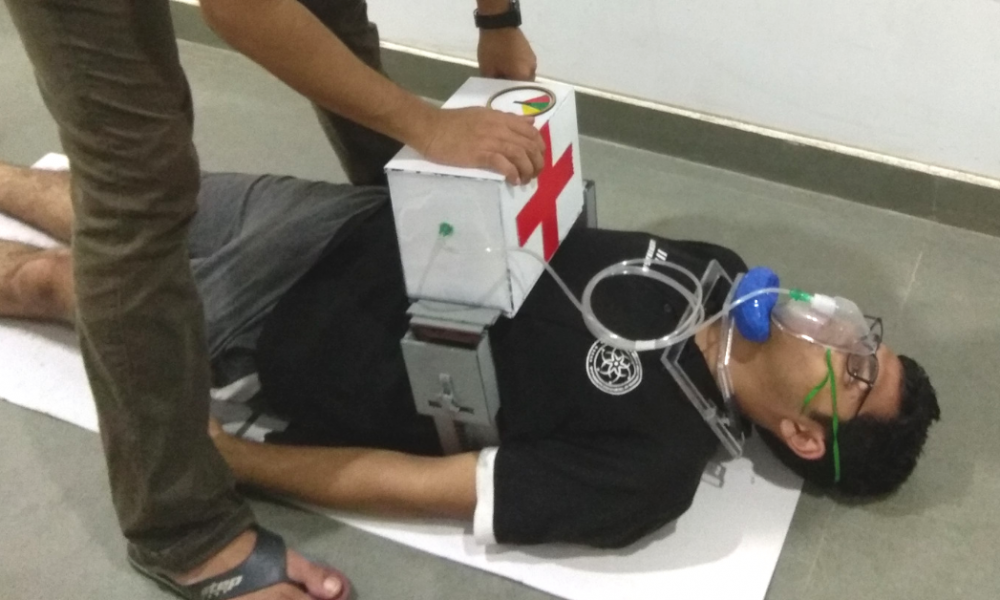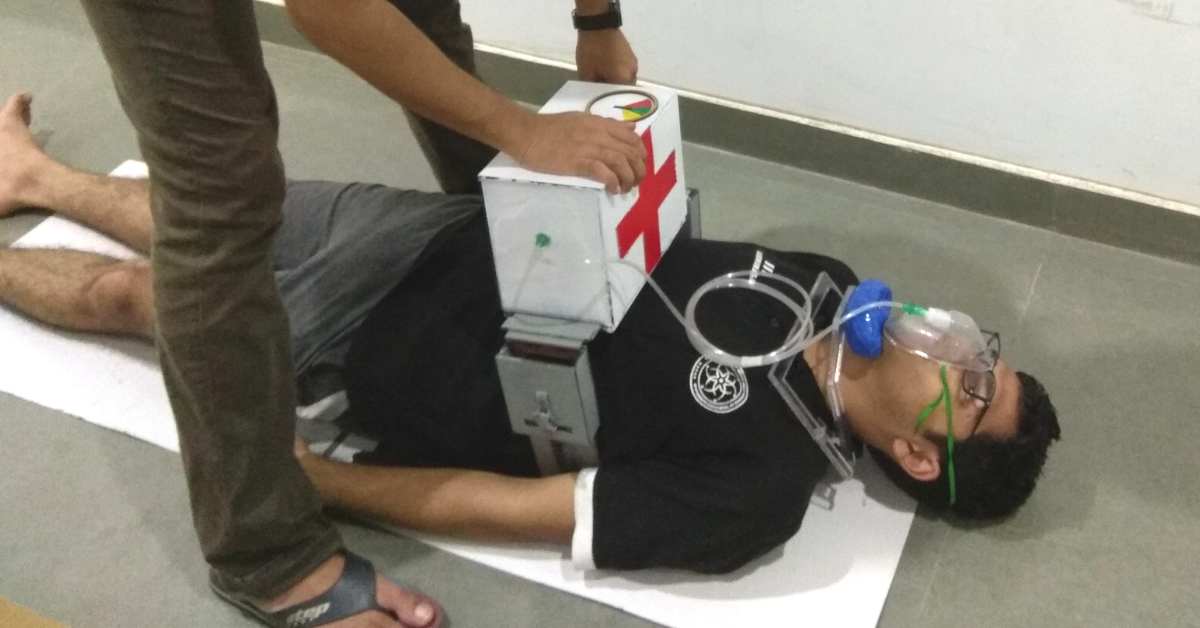
IIT students build low-cost, portable CPR machine
 India is considered as the capital of coronary diseases globally. In India, sudden cardiac arrests kill over seven lakh people every year which means almost 2,000 people per day or about 80 every hour!
India is considered as the capital of coronary diseases globally. In India, sudden cardiac arrests kill over seven lakh people every year which means almost 2,000 people per day or about 80 every hour!
The key reasons behind these staggering numbers are lack of life-saving equipment and the cost of treatment. In an attempt to improve the present condition, Kratika Bhagtani and Karthik Karvaje, two students from IIT Gandhinagar have developed a portable CPR (Cardio-Pulmonary Resuscitation) machine. As per the report in ‘The Better India,’ the students say that their invention could be what India’s healthcare system needs.
A portable CPR is a compact device which can give chest compressions at the proper depth and optimal rate. It also helps ventilate the lungs and keep the airway open and indicates the compression rate. It is hardly the size of a laptop and weighs less than one kg. To operate the device, it just requires rotating the handle, which makes it so simple. This manual operation can be replaced using a motor too.
The students have developed this portable CPR as a part of Invent@IITGN programme at IIT Gandhinagar. It was conducted for the first time in India during the summer of 2018 at IIT Gandhinagar by Professors Alan Wolf and Eric Lima—the founders of the original US programme. It was originated in the USA in 2013 at The Cooper Union, New York. Twenty selected students from IITs across the country had participated in the programme. They were grouped into ten teams of two students each and were given a budget of up to Rs 50,000 to conceive an invention, build, refine and test its prototype. They also had to write and file both Indian and US provisional patent applications in six weeks. For the portable CPR machine, Kratika and Karthik won Rs 1 lakh of prize money.
Kratika hails from Kota, Rajasthan, who was inspired by her father, a doctor. She said she had first thought of coming up with such a device when her father discussed with her about patients who died on their way to the hospital, in such cases where the ambulance took too long to respond.
Karthik, a native of Karnataka said that reducing the number of deaths reported was his prime motivation. He believes proper CPR can save the lives of many who die of cardiac arrest in India. Many people die because of the lack of know-how on how to properly give a CPR. Therefore, he said, they wanted to design a machine that can be operated with minimal training.
Source: The Better India, Moneycontrol.com